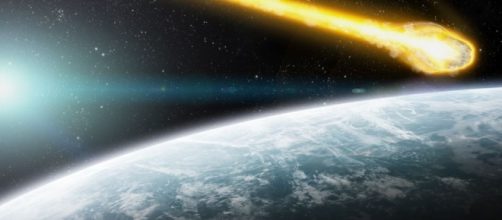NASA says helplessly : We can do nothing against an asteroid! NASA experts say that they wouldn't be able to do anything to prevent an impact with a cosmic object.
Dr. Joseph Nuth, a NASA researcher, says that nothing can be done if a collision with a comet or asteroid happens. He argues that now it takes about five years of preparation for a spaceship to be launched into space. A scenario like in the movie "Armageddon" where teams of experts land on the asteroid is unlikely to happen now. The trajectories of comets and asteroids are unpredictable over a large period of time.
Two steps away from "Armageddon" in the last 20 years
Nuth states that the Earth was very close to an impact recently : first in 1996, when a comet hit Jupiter, and then in 2014, when another comet passed at a very short distance of Mars. In the last case, the experts have discovered the comet only 22 months before - very little time to start a big project, also unprecedented.
However, these events are extremely rare in the Earth's history, but the last major collision led to the extinction of the dinosaurs. It was also noted that this kind of major impacts occur every 60 million years - about the time passed from the extinction of dinosaurs.
Project to defend the planet from asteroids
NASA has developed a project for defending the planet if such an event happens, but the project is still in an early stage.
Nuth recommended the building a missile of defense, which has to be kept in storage and tested regularly. The purpose is that this rocket could be ready for launch in a year, so it can be useful if the cosmic object comes from areas difficult to see such as the Sun.
Although the occurrence of such events is rare, there are enough space objects that could seriously affect the life on Earth. NASA discovered that more than 90% of the objects close to Earth have diameter larger than 1 km. Among the 1748 asteroids with a great potential risk there are 874 asteroids with a diameter of 1 km. The asteroids are rockiest and darker than the comets, and there are many of them on the belt between Mars and Jupiter.

